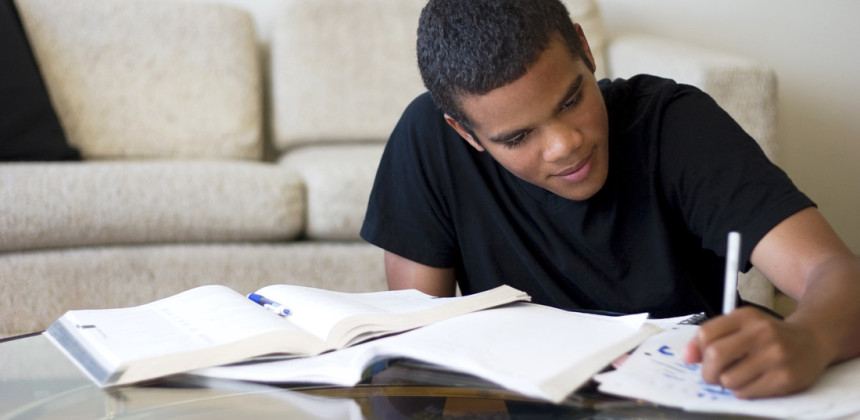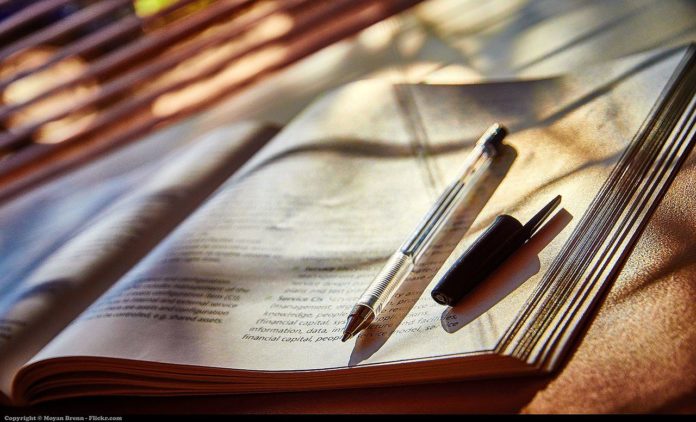Are you a high school student? Are you preparing for any high-level exams and aren’t able to concentrate on your studies properly? Here below are the 10 researched-based effective studying techniques that help you retain information. These following learning styles are the proven study habits adopted by the experts when they were students. -In addition to these tips, if you are planning to take SAT, you can benefit from a few prestigious review institutions like the Princeton Review by taking their SAT Test Prep courses. Admission success is seemingly high for most students who took The Princeton Review SAT Prep, visit this article here to learn more https://examgenius.org/the-
Keep in mind that whenever you begin to study, make mind maps, always keep yourself connected with intelligent study groups, and choose those study spots that help you in making your concentration.
1. Study From Print Sources:

There is no doubt that mobile phones, laptops, tablets, and eLearning sources are portable and convenient ways to study. However, research studies show that traditional methods of printed materials are the best way to study. They help in making your concentration level high and even don’t give any pressure on your eyes muscles. Many argue that digital media or interactive study methods like scrolling, pointing, and clicking enhance the interest levels in the study. Still, most of the students polled revealed that they prefer to study hard copies over digital methods when they have to do their school homework or prepare for the exam.
2. Always Do Physical Exercise Before Studying:

There are numerous benefits of physical exercises that have been already established by the fitness, health, and psychology sectors. Research shows that doing physical activities for fewer minutes can have a significant impact on the brain’s productivity and helps in making proper concentration levels. Just after doing a short workout, our brain powers get boosted up as when we exercise or any kind of physical activity, our bodies pump oxygen and other essential nutrients to the brain. As Dr. Douglas B. McKeag said that sweating just before the studies can help in making you more alert, concentrated, and pay more attention to the new information you are getting from the books. Thus, exercising before study sessions can improve your study and help you learn more things in a shorter time.
3. Listen To Certain Music Types:

Some experts argue that studying and listening to music together can hamper the ability to concentrate fully on the study. While it depends on individual preference, many believe that listening to certain kinds of music help students in making some parts of the cerebral system active, like “obscure 18th-century composers”. Such music helps students to study effectively and increases their ability to pay attention to what they are learning new things. Moreover, listening to music enhances your mood and changes the outlook of the study in general.
4. Try To Learn New Things When You’re Tired:

Studying when you are completely tired assists the brain in retaining the new skills in a better way, for instance, learning foreign language skills, or learning to play musical instruments. Memory consolidation brain process works best during the short wave sleep; at this point, the brain works on both restoration and reactivation processes. This means that if you revise your notes before sleep can make your brain learn the things even when you are sleeping. You can also create flashcards that you can read whenever you get tired.
5. Apply Active Recall Method In Studies:
This method is popularised in 2009 after a psychology professor has published his article on advising the students to read and re-read their textbooks for better learning. He suggested students use an active recall method: closing books and reciting the things that they have read and remembered from the book. This method helps in remembering things in a much faster way, and students can remember things for a longer time. Thus merely reading books cannot help in remembering things unless you recall them without looking into the book.
6. Take Proper Relaxation:
Stress leads to hinder the learning process. Researchers from UC Irvine find that stress lasting for a couple of hours can release corticotropin hormones that can disrupt creating and storing memory. So taking some relaxation intervals between the study like meditation, deep breathing, walk, or exercise will help you in improving your study by lowering the stress levels.
7. Change The Study Area:

Changing the scenery is the place where your study helps in increasing concentration and learning capabilities. Robert Bjork, a well-known psychologist, suggested that merely changing your study room to a different place can increase both concentrations and help in retention information. If you are studying from the last 6-8 months from the same place, change it to the new place, or you can choose a garden for an effective study.
8. Frequently Take Self-Assessment After Studying:

Always take your self-test just after studying or a day later. Self-assessment helps you in analyzing how much you have learned from your books. If you are preparing for exams like GMAT, SAT, or ACT, you can ask your teachers to provide you practice papers to test yourself. For checking the paper, you can also ask your mentors so that you become familiar with the checking criteria when you appear for the real test. One researched study conducted in 2011, shows that students who take tests prior to real one can easily retain 50% of the information they have learned compared to those who don’t take their self-tests.
9. Stop Overlearning:
If you have completed your day study goal easily and without getting tired, do not leap into learning more things. Overlearning leads to flushing out the information that you have learned before and hampers the quality of your studies. Always schedule a limited time to study a specific topic, and after completing that topic, do not further continue to learn more things, give your mind a rest and move on to some other things.
10. Stop Being Multitasking:
Do not be a multitasker while studying. For instance, texting and studying together is a poor habit that makes your study less effective and leaves you with zero information. As per the research studies, being multitasking while studying leads to extended study time and ultimately leads to lower grades.

















